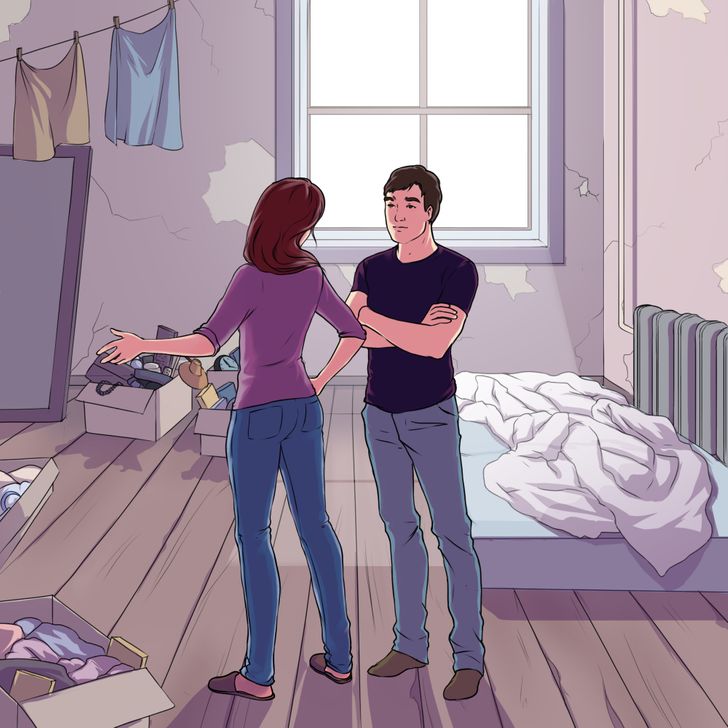Whether you love or hate cleaning is more than just a personality quirk. You can already tell something about a person just by looking at how they do the dishes and where they store their clothes. By paying more attention to the way you organize the space around you, you can learn a whole lot more about your personality. The same works for other people. If you want to try to get a read on someone new that you’ve met, just pay a visit to their home.
We think that it’s always useful to learn something new about ourselves and other people. So here are some of the most popular everyday habits people have and the psychological features that they reveal.
1. All their junk is hidden in drawers, closets, and boxes.

At first sight, their apartment or room might seem perfect: a clean floor, books arranged in a neat fashion, appropriate wallpaper… But once you take a look inside a kitchen drawer or a shelf in the closet, you might see broken scissors or pens, old credit cards, or crumpled clothes.
The way something looks is important to all of us and even more so for people with a dramatic personality type. They love showing the best sides of their personalities and they do a lot of things primarily to impress others. It’s easier for these people to just hide all the old and useless stuff instead of getting rid of it or sorting it out. Often, it’s more important for them to make their place look attractive than it is to actually make it clean.
2. There is an absence of at least some kind of renovation.

Some people spend years living in apartments with a leaky tap, old-school wallpaper, and keep things in boxes in order not to spend extra money on new stuff. They often treat their place as temporary: like they are planning to move to a different town, find a job abroad, get a mortgage, or just wait for their lives to somehow change.
But sometimes, they can live in this “temporary” place for decades. From a psychological standpoint, these people are inclined to live in the future and see it through rose-colored glasses. They treat the present as a temporary discomfort that they just need to tolerate. On the other hand, they often don’t have any solid plan — these people are used to living like this and they are constantly hoping for some outside help that will change their situation.
.
.
.
.
.
.
.
.
.
.
Tags: home, home improvement, psychology, mental health, spirituality, mindfulness, self-improvement, happiness, home, home improvement, psychology, mental health, spirituality, mindfulness, self-improvement, happiness,home, home improvement, psychology, mental health, spirituality, mindfulness, self-improvement, happiness,home, home improvement, psychology, mental health, spirituality, mindfulness, self-improvement, happiness,home, home improvement, psychology, mental health, spirituality, mindfulness, self-improvement, happiness,home, home improvement, psychology, mental health, spirituality, mindfulness, self-improvement, happiness,home, home improvement, psychology, mental health, spirituality, mindfulness, self-improvement, happiness,home, home improvement, psychology, mental health, spirituality, mindfulness, self-improvement, happiness,home, home improvement, psychology, mental health, spirituality, mindfulness, self-improvement, happiness,home, home improvement, psychology, mental health, spirituality, mindfulness, self-improvement, happiness,home, home improvement, psychology, mental health, spirituality, mindfulness, self-improvement, happiness,home, home improvement, psychology, mental health, spirituality, mindfulness, self-improvement, happiness,home, home improvement, psychology, mental health, spirituality, mindfulness, self-improvement, happiness,home, home improvement, psychology, mental health, spirituality, mindfulness, self-improvement, happiness,home, home improvement, psychology, mental health, spirituality, mindfulness, self-improvement, happiness,


